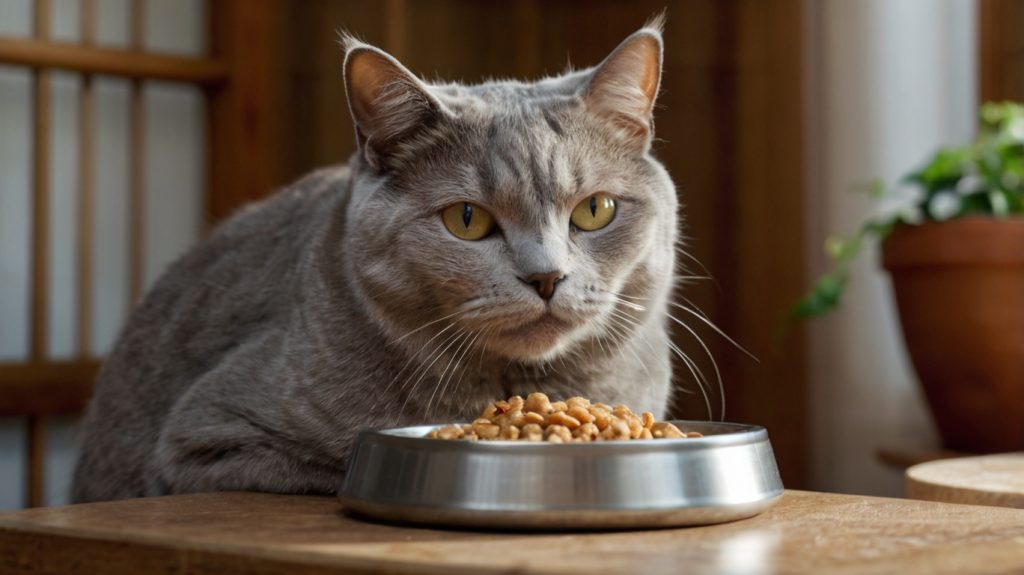As cats enter their golden years, their nutritional requirements evolve significantly. Understanding these changes helps ensure your aging feline maintains optimal health, energy, and quality of life throughout their senior years.

When Cats Become Seniors
Cats are generally considered seniors around 7-10 years of age, with those over 11 entering the geriatric stage. However, the transition to senior cat food requirements varies by individual, breed, and overall health status. Some cats may show age-related changes earlier, while others remain spry well into their teens.
Physical Changes Affecting Nutrition
Senior cats experience several physiological changes that impact their dietary needs. Decreased activity levels often lead to slower metabolism, while some cats may develop difficulty digesting fats and proteins efficiently. Additionally, dental issues can make eating uncomfortable, and reduced sense of smell may decrease appetite.
The cat’s health profile becomes more complex with age. Common conditions like kidney disease, hyperthyroidism, and arthritis require careful dietary management. Understanding these changes helps pet owners make informed decisions about senior cat food requirements.
Essential Nutritional Components
High-Quality Protein Senior cats actually need more high-quality protein than younger adults to maintain muscle mass and prevent age-related muscle wasting. Look for senior cat food containing 30-45% protein from easily digestible sources like chicken, fish, or turkey. The protein should be highly bioavailable to compensate for potential digestive inefficiencies.
Healthy Fats and Fatty Acids While some senior cats may have trouble digesting fats, they remain essential for coat health and energy. Omega-3 fatty acids, particularly EPA and DHA, support joint health and cognitive function. Moderate fat levels (10-15%) from high-quality sources work best for most senior cats.
Enhanced Hydration Water intake becomes increasingly crucial as cats age. Many seniors develop kidney issues and have reduced thirst sensitivity. Wet food provides additional moisture, supporting kidney function and preventing urinary tract problems. Aim for foods with high moisture content or supplement dry food with water.
Antioxidants and Vitamins Senior cats benefit from enhanced antioxidant levels including vitamins E and C, beta-carotene, and selenium. These nutrients support the immune system and help combat cellular damage from aging. B-complex vitamins become especially important as absorption may decrease with age.
Addressing Weight Management
Weight Gain Prevention Reduced activity and slower metabolism predispose senior cats to weight gain. Excess weight exacerbates arthritis, increases diabetes risk, and strains the cardiovascular system. Senior cat food should have controlled calorie content while maintaining adequate protein levels.
Weight Loss Support Some senior cats experience unintentional weight loss due to dental issues, reduced appetite, or underlying health conditions. These cats need nutrient-dense, highly palatable foods that maximize caloric and protein intake in smaller portions.
Special Dietary Considerations
Kidney Disease Support Many senior cats develop chronic kidney disease, requiring modified protein and phosphorus levels. While high-quality protein remains important, cats with advanced kidney disease may benefit from prescription renal diets with restricted but superior protein sources and reduced phosphorus content.
Digestive Health Senior cats often benefit from easily digestible foods with added prebiotics and probiotics. These support beneficial gut bacteria and improve nutrient absorption. Smaller, more frequent meals can also aid digestion and prevent gastrointestinal upset.
Cognitive Support Antioxidants, omega-3 fatty acids, and specific nutrients like medium-chain triglycerides may support cognitive function in aging cats. While research continues, these nutrients show promise for maintaining mental clarity in senior cats.
Choosing the Right Food
The Association of American Feed Control Officials (AAFCO) doesn’t have specific senior cat standards, so “senior” foods are essentially modified adult formulations. Look for foods meeting AAFCO adult maintenance requirements with senior-specific modifications.
Key features of quality senior cat food include:
- High-quality, named protein sources as primary ingredients
- Moderate fat content from digestible sources
- Enhanced vitamin and mineral profiles
- No artificial preservatives, colors, or unnecessary fillers
- Appropriate texture for dental comfort
Feeding Guidelines and Monitoring
Senior cats should be fed measured portions rather than free-fed to monitor intake and maintain appropriate weight. Most benefit from two smaller meals daily rather than one large meal. Regular weigh-ins help track changes, as gradual weight loss can indicate underlying health issues.
Monitor your cat’s body condition score regularly. You should be able to feel ribs easily without seeing them prominently. A visible waist when viewed from above indicates healthy weight maintenance.
Transitioning to Senior Food
When switching to senior cat food, transition gradually over 7-10 days. Start by mixing 25% new food with 75% current food, gradually increasing the new food proportion. This prevents digestive upset and allows cats to adjust to new flavors and textures.
Special Health Conditions
Diabetes Management Diabetic senior cats benefit from high-protein, low-carbohydrate diets that help regulate blood sugar. Consistent meal timing supports insulin management.
Arthritis Support Foods containing omega-3 fatty acids and glucosamine may provide anti-inflammatory benefits. Elevated feeding stations can make eating more comfortable for arthritic cats.
Dental Issues Cats with dental problems may prefer wet food or softened kibble. The texture should be easy to manage while still providing complete nutrition.
Signs Your Cat Needs Dietary Adjustment
Watch for changes in appetite, weight, energy levels, or litter box habits. Increased thirst, changes in coat quality, or behavioral modifications may indicate the need for dietary assessment. Regular veterinary checkups become increasingly important for monitoring health and adjusting nutrition accordingly.
Conclusion
Senior cat food requirements focus on maintaining health, preventing disease, and supporting quality of life. The key lies in providing high-quality, easily digestible nutrition tailored to your cat’s individual needs. Working with your veterinarian ensures optimal nutrition throughout your cat’s golden years, helping them maintain vitality and comfort as they age gracefully.